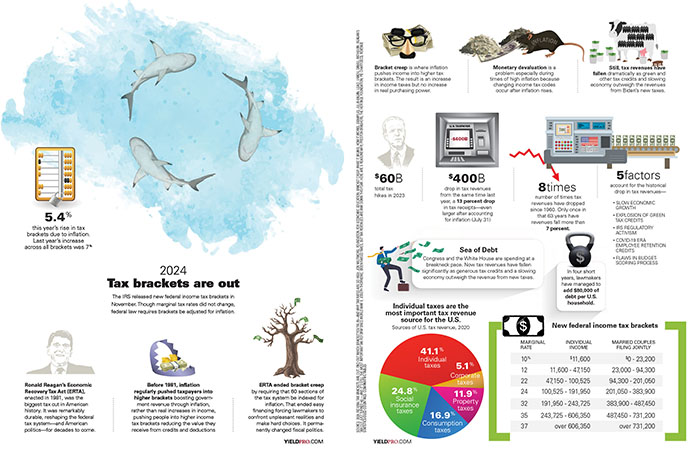It’s a truism that we live in a networked age: computers connected to each other; phone systems connected to computers; customer data linked to inventory; inventory linked to analytic tools. We have the ability and the technology to connect everything to everything and make it all so much smarter.
The hard part is the human part. Networking may be easy for machines, but it is hard for people — we’re not quite sure what it really is and we’re not all that comfortable doing whatever it is we think it should be.
What everyone seems agreed upon about networking is: it works. It’s the most successful job search tool in the world, responsible for filling up to 80% of vacancies. Any sales person will tell you that networking is the engine of their success — indeed companies often headhunt salespeople as much for their network as for their skills. In the last few years, I’ve been struck that it’s those with deep networks that have escaped being laid off. We see that networked people, people in the know, are infused with more authority and seem to find better opportunities than the loner who travels quickly — but not so far. But where do networks start — and what’s the difference between a great network and a random collection of business cards?
NETWORKS ARE RELATIONSHIPS
Networks start with all the people you know and all the people you work with — and all the people that they know and work with — and so on. But building a network is not about building a huge Rolodex. It isn’t about collecting email addresses and it should not be approached like direct marketing. Networking is about storytelling — understanding people well, knowing who’s really good at what, remembering who needs what.
Expert networkers know that building good relationships is the bedrock of all careers. Reflecting how powerful this can be, psychologists refer to relationships and connectedness as “social capital” and they’re serious in inferring that these skills grow, compound and create real value. Skills in this area are often undervalued — “people skills” — are often accorded less respect than number or code crunching. But without strong relationships, no business can function and no career will flourish.
Networks thrive in exponential proportion to the effort and attention to detail that you put into them. Networking has become such a buzz word that, like speed dating, some people seem to think it replaces relationships; it doesn’t. Networks are relationships. Like all relationships, they require time and attention: paying attention to who people are, what their needs are and not wasting people’s time with introductions that don’t reflect those needs.
GENEROSITY AND RECIPROCITY ARE NETWORK FUEL
Benjamin Franklin is reported to have said, “If you want to make a friend, let someone do you a favor.” He clearly understood that asking for help is a privilege for the helper — and he must have been a great networker. Networks work best when they are generous and reciprocal. I’ll help anyone I can, assuming they will do likewise when they can. I don’t keep score and will give a lot before I give up. I’d rather err on the generous side and I realize that the consequences of my help may be random, beyond my control.
Nevertheless, everyone has their limits. Because, without reciprocity, networks wither. When I came to Boston, I knew only two people. One of them was a Harvard College and Harvard Business School grad. Tim had lived in Boston forever and was (or so he claimed) an ace networker. He would always call me when he was looking for a job and, out of ancient family loyalties, I’d help him if I could. But it seemed odd that I was helping him — I, who knew no one, helping someone who had lived in the town his entire life. After many years, I realized that, as much as I helped him, he never, ever helped me, never introduced me to a single person. He was a network user, not a network builder. In the end, I gave up on him.
THE BEST NETWORKS ARE BEYOND CONTROL
Networks are so powerful because individual people and events can’t break them. They grow when you are asleep, exhausted, distracted. They are powerful precisely because they are beyond your control, the antithesis of central command. You can never know who will help you. I got my first CEO position through a woman in my network. We weren’t friends; we didn’t know each other very well. In making an introduction for me, of course she helped herself — but that wasn’t her only motive. She understands the power of networks and I wait for the opportunity to repay her. Small amounts of attention to relationships pay huge dividends when part of a network. The compound interest built by social capital is truly staggering.
Key to this is not only deep, reciprocal knowledge of those in your network — but being willing to let the network know when you need help and what you need. Almost anyone in your network will help you if they can — but do they know what to look for? Men tend to be better at asking for help than women — which means that women would get a lot more from their networks if they were less bashful about using them.
MEN ARE BETTER NETWORKERS THAN WOMEN (SIGH)
Research shows that, in business, men are better networkers than women. They know a broader array of people and call upon them more easily. This surprises me. I’d always assumed that women were ace networkers; we’re good conversationalists, curious about other people and we like sharing. Our problem is that we are reluctant to trust each other — and reluctant to ask for help.
The high school prom has a lot to answer for. Through most of our school years, we learn to compete against other girls for the attention of boys. As Rachel Simmons showed in Odd Girl Out, far from learning the power of working together, girls grow up with bad lessons in divide-and-rule, the antithesis of good networking. When we take this behavior into business, it’s disastrous. Almost every successful woman I know has a horror story about a Queen Bee who tried to block her success, seeing her as a threat rather than as an ally. It’s lonely being a successful woman — but it doesn’t have to be. If, instead of freezing them out, we look upon other women not as rivals but as the beginning of a network, we could build a tremendous source of power.
One of the greatest experts on networks is Janet Hanson. Since her experience of leaving Goldman Sachs on maternity leave, she and her husband have spent more than a million dollars building 85 Broads, a private network and website for Wall Street women. She has watched her site help women find jobs — but, even more important, helped them hear their own voice, gave them the courage to think for themselves. Within 85 Broads, ex-Goldman Sachs employees advise current ones and give them the support, encouragement and connection men have enjoyed for years. Working together, women push each other up the learning curve faster by making it clear that their talent and abilities don’t need institutions — they just need each other.
We need also to see how broad and diverse our networks really are. When I was starting up a non-profit to bring live music into hospices and nursing homes, I found it hard to get my idea taken seriously. It was my husband who suggested I talk to our family doctor — who made the introduction that got the whole thing off the ground. What was my problem? Because he wasn’t a business colleague, I didn’t see the doctor as part of my network. I was too narrow in my thinking.
NETWORKS CAN’T EXCLUDE
Many women avoid women-only networks, especially those within corporations, feeling that these organizations build dissatisfaction, rather than power. And they worry about being singled out as a malcontent. Personally, I love the company of women and find their insight combats any sense of isolation, provides context and helps women to see that many of the things that happen to them are not personal.
But such exclusive groups should never be the only network in your professional life. For both men and women, exclusivity narrows your outlook and strangles the wisdom and intelligence networks can deliver. By their very nature, networks should be organic, grown by your skills, interests, needs. The best networks feature a rich diversity of people at all levels, are positive, are defined by your values and reach beyond your industry.
SOFT SKILLS ARE BETTER THAN SOFTWARE
Software like Outlook or ACT and websites like LinkedUp or Orkut purport to be network builders — and they’re good tools. But the tool isn’t the network. Software may be more systematic than you are — but it doesn’t reflect the empathy which gives your network meaning. Networks are functional — phenomenally so — but when they become merely functional, they lose half their power. That power derives from values, from a sense of shared purpose and concern, and an investment of goodwill into the success of others that no code can fully replicate. At least, not in my lifetime.
Author: Margaret Heffernan















